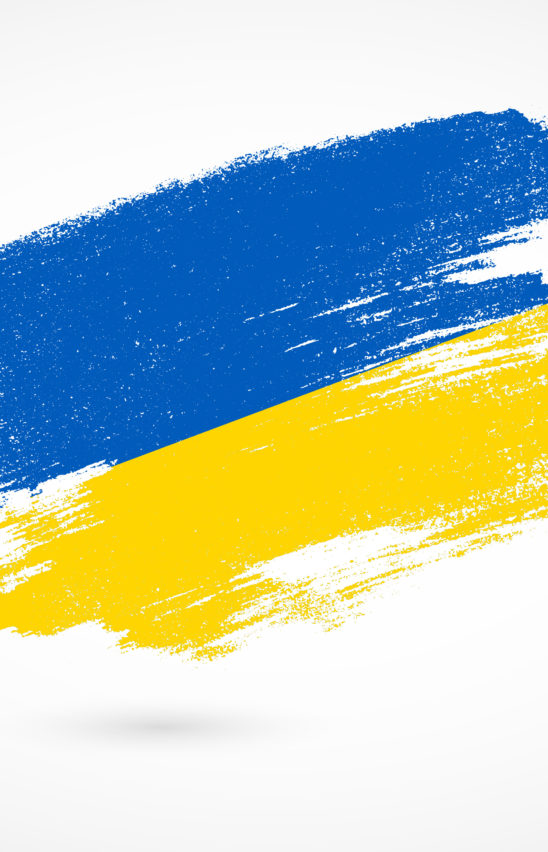
Corporations and the invasion of Ukraine
Barely a month and a half has passed since the war started and Ukraine has already suffered to great length: thousands of people have died, more than four million civilians have fled the country, and a few cities have been completely wiped out. Instead of rounding up troops and going to war with Russia, Western countries have decided to implement radical sanctions against Russia’s economic interests. Such decisions have had both direct and indirect consequences on the international companies operating in the country. Simultaneously, some companies have chosen, without government orders, to withdraw from Russia. These choices are directly going against the companies’ short and long-term financial interests: corporate ethical and social responsibility seems to prevail, leading us to ask ourselves if a true paradigm shift could be on the way.
Some corporations have been forced to stop all activities because of sanctions enacted by governments. For example, flight compagnies have been forbidden to land on Russian soil. Banks have also been prohibited to allow transactions, and had to exclude Russia from their payment systems, notably Swift. The United States have implemented the strictest sanctions in the entire world, notably by prohibiting importations of Russian oil and gas, but this sort of events is not exactly news. In recent years, Donald Trump has reinstated economic sanctions against Cuba, therefore leading Marriott International to withdraw. As he sanctioned Iran, the American president also forced French corporations such as Airbus, PSA, Vallourec or Alstom to leave the country.
However, a large number of compagnies have made a rather unusual choice. Without any legal incentive or obligation, they have chosen to withdraw their businesses from Russia or at least to suspend all operations for the time being. According to Yale University, more than 400 foreign companies operating in Russia have chosen to do so since the beginning of the conflict. These decisions were largely motivated by the international emotion caused by the Russian Invasion, shared to a greater or a lesser extent by shareholders, employees, or clients. In the span of a few days, most multinationals took a stance, such as McDonald’s, Ikea or Coca-Cola, as well as the big French luxury groups LVMH, Chanel and Hermès.
On the contrary, companies refusing to leave Russia have been heavily criticized on social media, where hashtags #stopputin or #exitrussia have submerged their accounts. The Ukrainian president has made this subject an important part of his communication strategy. During his speech in front of the French parliament on March 23thd, Volodymyr Zelensky had no qualms in naming the French companies he considered “guilty” for not having taken the right decision yet. Renault, Total Energies, Auchan and Leroy Merlin were directly named one after the other. This strategy seemed to have beared fruit, as Renault followed suit and promptly suspended its activities in Russia, even announcing that the company might consider changing strategies when it comes to its Avtovaz branch, manufacturer of the famous Lada.
While in France the corporate world seemed to have reached a global consensus, two groups have stood their ground and chose radically different options, ignoring the increasingly vociferous criticism : TotalEnergies and the Association Familiale Mulliez (AFM).
TotalEnergies’ president Patrick Pouyanné, has long been confronted to these sort of issues, notably in Myanmar, and simply emphasized his scalding thoughts about economic sanctions generally speaking. Facing the reactions caused by such an abrupt and rigid statement, as well as accused on social media of financing Russia’s war effort, he had to promptly announce the immediate end to any purchase of oil, and later on, gas. He then participated in RTL’s matinale in order to defend with emotion his company’s image.
On Mulliez’s end, the group is firmly implanted in Russia thanks to its Auchan and Leroy Merlin subsidiaries. The group has refused to cease its activity, asserting that it had responsibilities toward “its 45 000 collaborators as well as their families” and that they were supplying food to the Russian population, which cannot be held responsible for the war. Such arguments are compelling, but weigh little against public opinion and its “tribunal médiatique”. These arguments were even less admissible after the bombing of Kiev’s own Leroy Merlin store, as Ukrainian employees pleaded for the company to stop their operations in Russia. This direct interpellation was largely spread through French media and a petition calling for Leroy Merlin to withhold its activity was even created, to no avail. Family companies might have more resources to resist such pressure than those that are publicly-listed or ran by investment funds.
Thus, the Ukrainian war has been painting a new picture of the increasingly growing social responsibility of corporations. Their stakeholders are now asking that they fit certain ethical and collective requirements, and do not hesitate to ask for involvment, even if this means sacrificing economic or financial gains. And companies abide, highlighting how corporate influence has become a true intangible asset.
